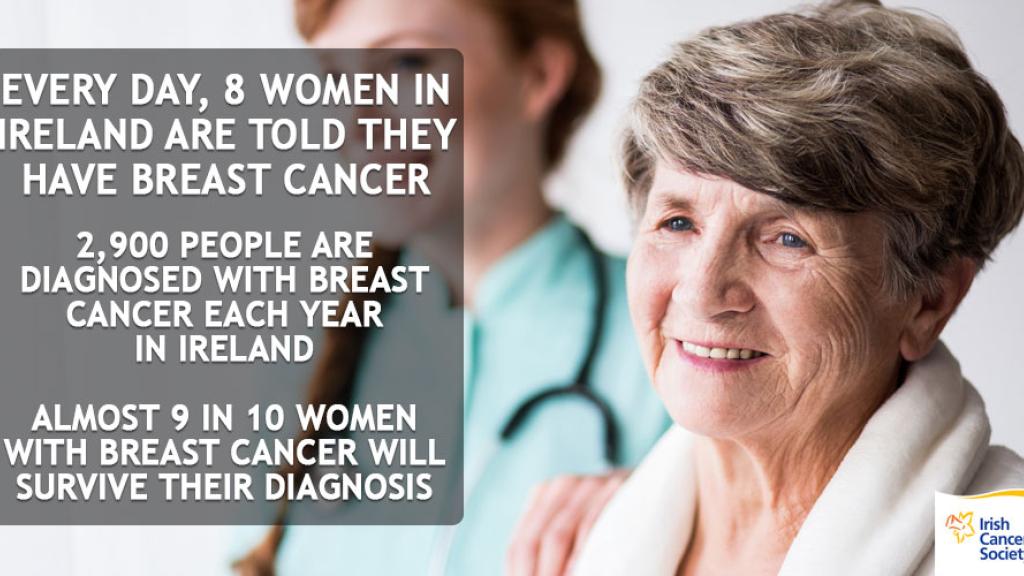
Breast cancer: Risk factors and how to reduce your risk
There are several risk factors that contribute to the development of breast cancer, including age, medical history and hormones.
Risk factors for developing breast cancer
Being a woman
[[{"fid":"7406","view_mode":"teaser","fields":{"format":"teaser","field_file_image_alt_text[und][0][value]":"Older woman looking concerned","field_file_image_title_text[und][0][value]":false},"type":"media","field_deltas":{"2":{"format":"teaser","field_file_image_alt_text[und][0][value]":"Older woman looking concerned","field_file_image_title_text[und][0][value]":false}},"link_text":null,"attributes":{"alt":"Older woman looking concerned","style":"font-family: Arial, Helvetica, sans-serif; font-size: 14px; float: right; margin: 5px;","class":"media-element file-teaser","data-delta":"2"}}]]
Being a woman is the main risk factor for breast cancer.
Men can get breast cancer, but it is very rare.
Getting older
Your risk of breast cancer increases as you get older.
Most women who get breast cancer are over the age of 50. (76% of breast cancer patients are over 50 years old). However, the disease can strike younger women too.
Having had breast cancer previously
Women who have had breast cancer have an increased risk of getting breast cancer in the other breast or in another part of the same breast.
Hormone replacement therapy (HRT)
Women on HRT are at an increased risk of breast cancer. Your risk decreases gradually after you stop taking it.
[[{"fid":"5620","view_mode":"teaser","fields":{"format":"teaser","field_file_image_alt_text[und][0][value]":"Photo of contraceptive pills","field_file_image_title_text[und][0][value]":false},"type":"media","field_deltas":{"1":{"format":"teaser","field_file_image_alt_text[und][0][value]":"Photo of contraceptive pills","field_file_image_title_text[und][0][value]":false}},"link_text":null,"attributes":{"alt":"Photo of contraceptive pills","style":"float: right; margin: 5px;","class":"media-element file-teaser","data-delta":"1"}}]]
The Pill
The contraceptive pill causes a small increase in risk. This risk gradually returns to normal after you stop taking it.
Starting periods at an early age or having a late menopause
Women who have their first period before the age of 12 or who have the menopause after the age of 55 have a slightly increased risk.
Having no children
Women who have no children or who have their first child later in life have a slightly increased risk.
A strong family history of breast cancer
Women with a strong family history of breast cancer have a higher risk of getting the disease.
A strong family history includes:
- Breast cancer and/or ovarian cancer in several close members of the same family.
- Breast cancer in a close relative when under the age of 50.
Looking for more detailed information about breast cancer risk factors? Visit our breast cancer section for more information.
How to reduce your risk of breast cancer
Be a healthy weight
Being overweight after the menopause can increase your risk of breast cancer. This is because fat cells in your body increase hormones and high levels of certain hormones in turn increase your cancer risk. Try to be a healthy weight by eating a healthy diet and being active.
Be active
[[{"fid":"879","view_mode":"teaser","fields":{"format":"teaser","field_file_image_alt_text[und][0][value]":false,"field_file_image_title_text[und][0][value]":false},"type":"media","field_deltas":{"6":{"format":"teaser","field_file_image_alt_text[und][0][value]":false,"field_file_image_title_text[und][0][value]":false}},"link_text":null,"attributes":{"style":"float: right; margin: 5px;","class":"media-element file-teaser","data-delta":"6"}}]]Women who are physically active have a lower risk of breast cancer than less active women. Try to do at least 30 minutes of moderate physical activity on five or more days a week. Moderate physical activity is any movement that makes you feel warm and breathe a little deeper.
Learn more about the connection between physical activity and risk of cancer.
Limit alcohol
[[{"fid":"2440","view_mode":"teaser","fields":{"format":"teaser","field_file_image_alt_text[und][0][value]":false,"field_file_image_title_text[und][0][value]":false},"type":"media","field_deltas":{"5":{"format":"teaser","field_file_image_alt_text[und][0][value]":false,"field_file_image_title_text[und][0][value]":false}},"link_text":null,"attributes":{"style":"float: right; margin: 5px;","class":"media-element file-teaser","data-delta":"5"}}]]Drinking alcohol increases your risk of breast cancer. The more you cut down on alcohol, the more you can reduce your risk. Limit your risk by drinking no more than one standard drink a day.
Learn more about the relationship between cancer risk factors and drinking alcohol.
Breastfeed your baby
Breastfeeding helps to protect mothers from breast cancer. It is best to breastfeed your baby for the first six months if possible. The longer a woman breastfeeds her baby, the more she reduces her breast cancer risk.
Don’t smoke
[[{"fid":"7408","view_mode":"teaser","fields":{"format":"teaser","field_file_image_alt_text[und][0][value]":"Woman breaking a cigarette in half","field_file_image_title_text[und][0][value]":false},"type":"media","field_deltas":{"3":{"format":"teaser","field_file_image_alt_text[und][0][value]":"Woman breaking a cigarette in half","field_file_image_title_text[und][0][value]":false}},"link_text":null,"attributes":{"alt":"Woman breaking a cigarette in half","style":"float: right; margin: 5px;","class":"media-element file-teaser","data-delta":"3"}}]]Some recent research suggests that smoking may increase the risk of breast cancer. It is important to note that smoking causes 30 per cent of all cancers.
For advice, support and information contact the HSE Quit Team on Freephone 1800 201 203, Freetext QUIT TO 50100.
The Irish Cancer Society is also piloting a programme called We Can Quit where groups of women help each other to quit smoking as part of a 12 week routine.
Learn more about We Can Quit to see if you're eligible to take part.
Attend screening
[[{"fid":"7409","view_mode":"default","fields":{"format":"default","field_file_image_alt_text[und][0][value]":"BreastCheck logo","field_file_image_title_text[und][0][value]":"BreastCheck"},"type":"media","field_deltas":{"4":{"format":"default","field_file_image_alt_text[und][0][value]":"BreastCheck logo","field_file_image_title_text[und][0][value]":"BreastCheck"}},"link_text":null,"attributes":{"alt":"BreastCheck logo","title":"BreastCheck","style":"float: right; margin: 5px;","class":"media-element file-default","data-delta":"4"}}]]Attend BreastCheck, the breast cancer screening service when called. All women aged 50 to 69 are invited to have a free mammogram every 2 years.
Visit www.breastcheck.ie for more information.
Related information
Meet some breast cancer survivors:
- Deirdre is a breast cancer survivor.
- Niamh is a breast cancer survivor.
- Sheyla is a breast cancer survivor.
Read about the work being done by Irish Cancer Society breast cancer researchers.
More information about breast cancer:
Chat with other people affected by breast cancer in our online community.
